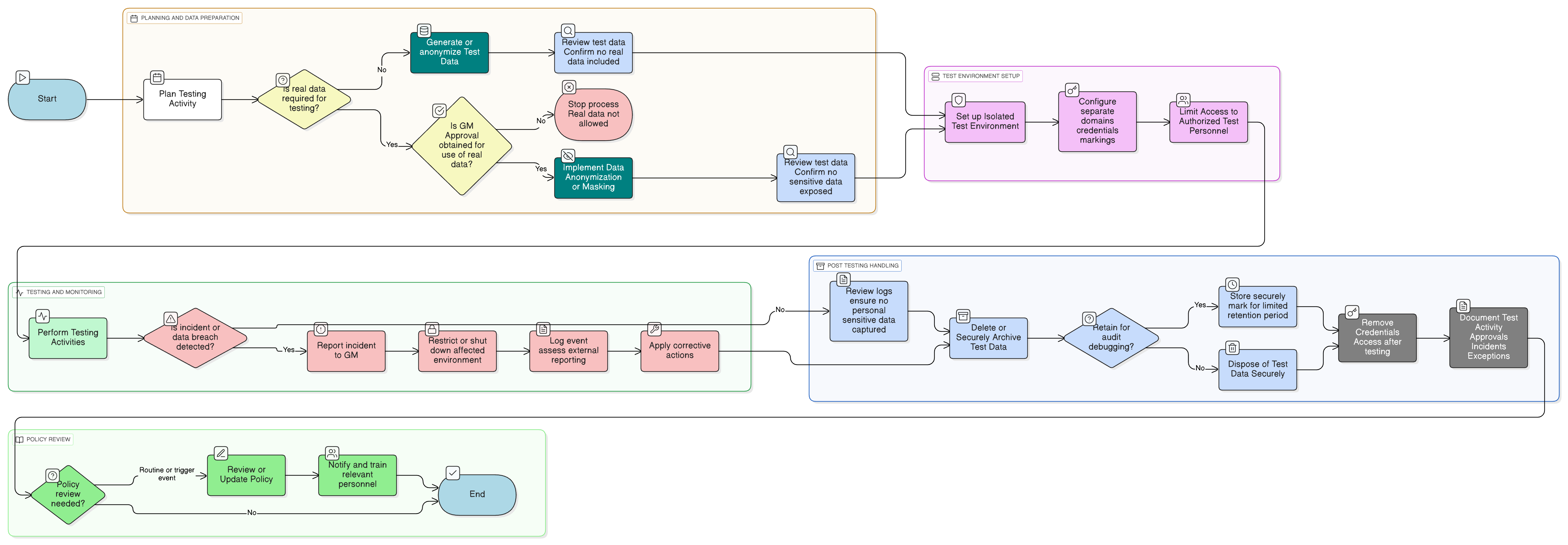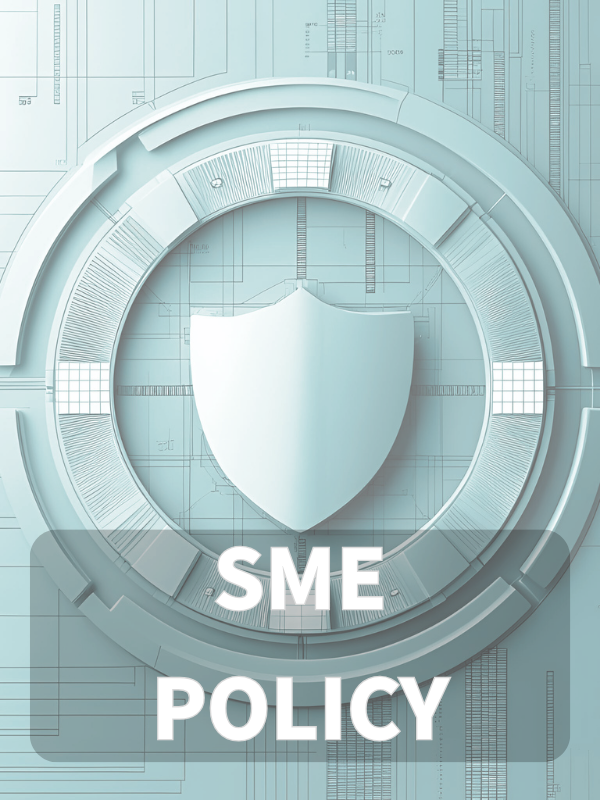Overview
This SME-focused policy outlines requirements for secure test data handling and proper test environment separation, prioritizing anonymization, access controls, and compliance with international standards and regulations.
Prevent Data Breaches
Enforces test data anonymization and strict access controls to minimize risk of accidental data exposure.
Clear Environment Isolation
Mandates technical and logical separation of test and production environments for compliance and safety.
SME-Friendly Controls
Designed for organizations without a dedicated IT team, balancing practicality with ISO/IEC 27001 requirements.
Read Full Overview
Policy Diagram

Click diagram to view full size
What's Inside
Scope and Rules for Test Data
Environment Isolation Requirements
Access Management for Test Systems
Data Retention and Disposal Guidelines
Risk Assessment and Exception Handling
Incident Reporting and Audit Readiness
Framework Compliance
🛡️ Supported Standards & Frameworks
This product is aligned with the following compliance frameworks, with detailed clause and control mappings.
Related Policies
Governance Roles And Responsibilities Policy-SME
Defines who is accountable for overseeing development, testing, and system segregation responsibilities.
Access Control Policy-SME
Governs the assignment, management, and removal of test system access credentials.
Information Security Awareness And Training Policy-SME
Ensures staff understand test data risks, secure handling practices, and proper separation of environments.
Data Classification And Labeling Policy-SME
Supports clear classification of test data and guides anonymization or masking strategies.
Data Protection And Privacy Policy-SME
Aligns with GDPR obligations, including safeguards around processing and storing personal data—even in test environments.
Secure Development Policy-SME
Provides overall security expectations for development teams, including safe use of data during testing phases.
Incident Response Policy-SME
Outlines how to respond to any breach or issue discovered in a test environment or caused by improper test data handling.
About Clarysec Policies - Test Data and Test Environment Policy - SME
Generic security policies are often built for large corporations, leaving small businesses struggling to apply complex rules and undefined roles. This policy is different. Our SME policies are designed from the ground up for practical implementation in organizations without dedicated security teams. We assign responsibilities to the roles you actually have, like the General Manager and your IT Provider, not an army of specialists you don't. Every requirement is broken down into a uniquely numbered clause (e.g., 5.2.1, 5.2.2). This turns the policy into a clear, step-by-step checklist, making it easy to implement, audit, and customize without rewriting entire sections.
Audit-Ready Documentation
Maintains records of approvals, incidents, and testing actions, supporting internal and external audit compliance.
Role-Driven Accountability
Assigns practical responsibilities to existing SME roles like General Manager and IT Provider, no specialized teams needed.
Frequently Asked Questions
Built for Leaders, By Leaders
This policy was authored by a security leader with 25+ years of experience deploying and auditing ISMS frameworks for global enterprises. It's designed not just to be a document, but a defensible framework that stands up to auditor scrutiny.
